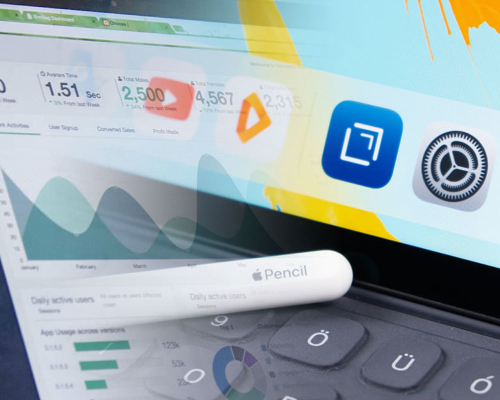Is our obsession with data inhibiting creativity?
16 Dec 2019

'Well this is what the data is telling us’…‘we’ve looked at the data and these are our recommendations’. We’ve all heard that the world’s most valuable resource is no longer oil, it’s data.
Whether you agree or disagree (I’m sure John D. Rockefeller would have something to say), being able to validate every decision using scientific facts seems to make complete sense on the face of it and certainly takes away any subjective bias when pitching ideas to clients.
However, could it be argued that this obsession has not only made it easier for us in the industry to hide behind stats, but has also made us less risk adverse and unwilling to trust our instincts?
Of course, questionnaires, surveys, straw polls and customer research groups all existed before Tim Berners-Lee helped to change the world forever. But back in the pre-digital age, creative people seemed more willing to place faith in their experience, or even an idea they simply had a ‘gut feeling’ about. More often than not, they were proved to be right.
As the great Rory Sutherland recently said, ‘designing for the average person can more than likely lead to an average outcome’. So, being governed by ‘mean’ data will literally mean designing a solution for the most common denominator -the average. However, thinking logically about what average means (‘ordinary, standard, normal’), creating something that will appeal to this audience is very difficult as it’s very hard to say what the ‘average’ person will like. On the other hand, creating something different, that can make waves in a sea of sameness, will more than likely be noticed by ‘early adopters’ who typically pave the way for the mainstream to follow.
I was once told by somebody that worked as part of the senior team at Virgin that Sir Richard Branson’s mantra is always ‘if everybody else is going to turn left, we’ll turn right’. For successful brands, the message is clear: when it comes to creative, lead - but do not be led.
Whilst I’m certainly not advocating ignoring what the data tells us, I believe artistic people should not allow it to curtail their creative thinking. Data should inspire ideas, not dictate or place limitations on them. Trust your instincts, look for validation of your idea in something that has gone before, but be prepared to take some risks. All the data in the world is no substitute for a room full of creative minds, a set of marker pens, an A-board and an endless supply of coffee - this is when the real magic happens.
And remember, when that genius of an idea finally does come to you, there’s absolutely no harm at all in getting a little creative with the data and getting it to tell the story you want it to tell.




1.png)
Please login to comment.
Comments